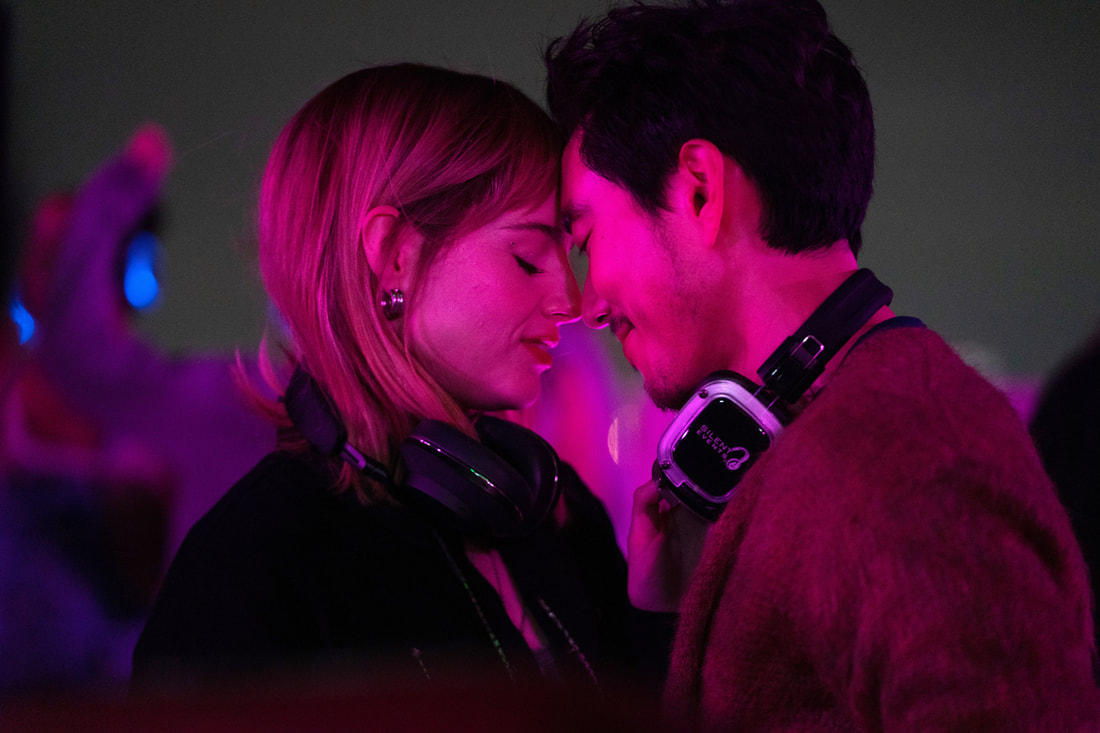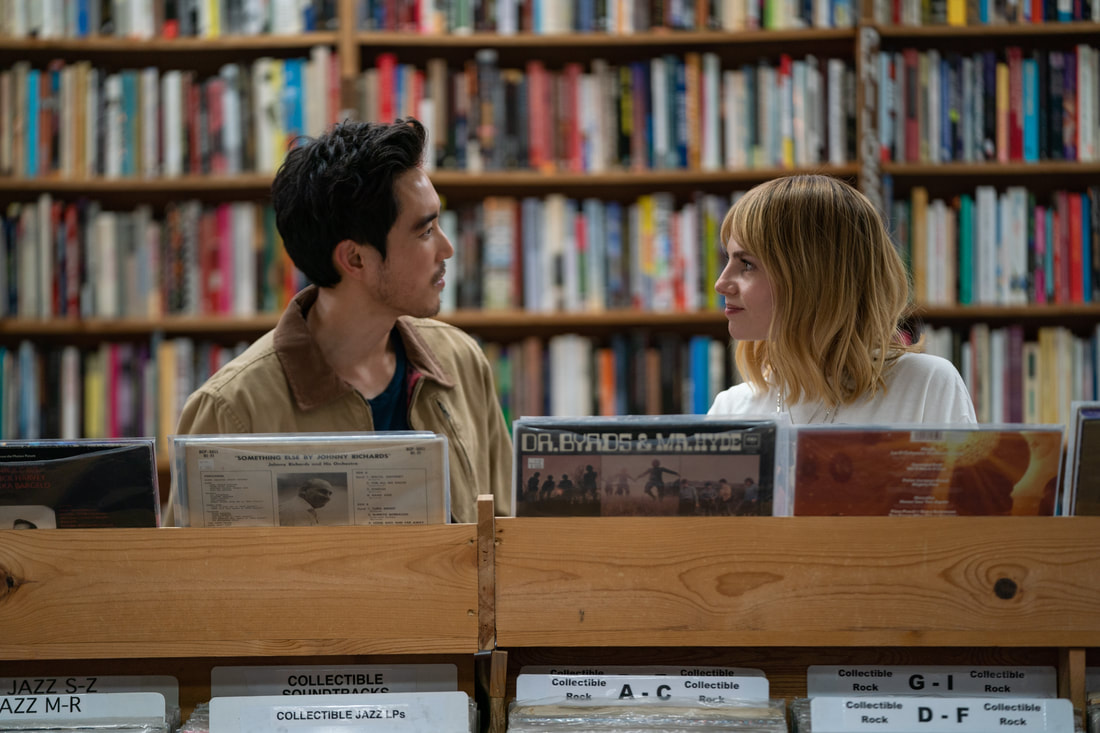|
Review by Jonathan Berk Rob in High Fidelity is organizing his record collection autobiographically, and he states that if he wants to find a specific song, he has to remember the event he associates with it. Marty in Back to the Future II travels through time, hoping to change something in the past to fix something in the future. Imagine if those two stories crossed, and it was placed into a romantic comedy of sorts. If that interests you, then director Ned Benson’s new film, The Greatest Hits, is for you. Harriet (Lucy Boynton) is approaching the two-year mark of the death of her former boyfriend, Max (David Corenswet), whom she revisits by listening to certain songs that transport her back in time. Her mission to figure out if she can change the past is jeopardized when a surprise collision with David (Justin H. Min) sparks a potential new love interest. The film utilizes this conceit in impactful ways as Harriet and David try to figure out how they fit into each other’s world. Boynton hasn’t been given too many chances to lead a film since her breakout performance in Sing Street. She does not waste the opportunity with this film. Her charm is on full display, and she easily wins over the audience. She is singularly focused now after being utterly destroyed by the loss of Max. Her performance feels genuine and so sincere. One of the biggest challenges with a film like this is establishing the status quo of the world. Benson’s script does a great job of initiating the rules and subsequently adhering to them. The records are sorted by “tested” and “untested,” and we see that she has a lot of earplugs and noise-canceling headphones. We also notice that her car radio is ripped out. It becomes clear after the first time we witness her time travel that she doesn’t know for sure what songs can send her back. Benson plays with a few other ideas in the script centered around this element, making it as intriguing as it is heartfelt. Grief is at the center of the story. It’s an emotion that works quite well with this metaphor. What if you could do something to save the one you loved? Most of the time, we simply wish for the possibility, but Harriet may actually be able to do something about it. She meets David at a grief counseling session, and through their shared grief, something new begins to grow. The possibility of finding happiness after all the pain creates feelings of hope and guilt. It makes what could just be an interesting premise resonate all the more.
Of course, what could be more ripe for this metaphor than music? Songs — and art in general — often send us back to that moment when we had a shared experience with it. A few lines from a song may send you back to that summer BBQ or the awful school dance. Music has the power to transport us back to when we were children or when our heart was split in twain. Benson’s film simply takes this concept most people are intimately familiar with and says, “What if it literally sent your back?” It works wonders for storytelling. The Greatest Hits is full of love and music. Fans of John Carney’s films Once or Sing Street will likely enjoy the sentiment found here. Benson’s only directed a couple of films with a decade between them, but he appears to have something impactful to say about grief. His latest is one to watch. The Greatest Hits will be in theaters on April 5. Rating: 4/5
0 Comments
Leave a Reply. |
Archives
July 2024
Authors
All
|
|
|
disappointment media
Dedicated to unique and diverse perspectives on cinema! |


